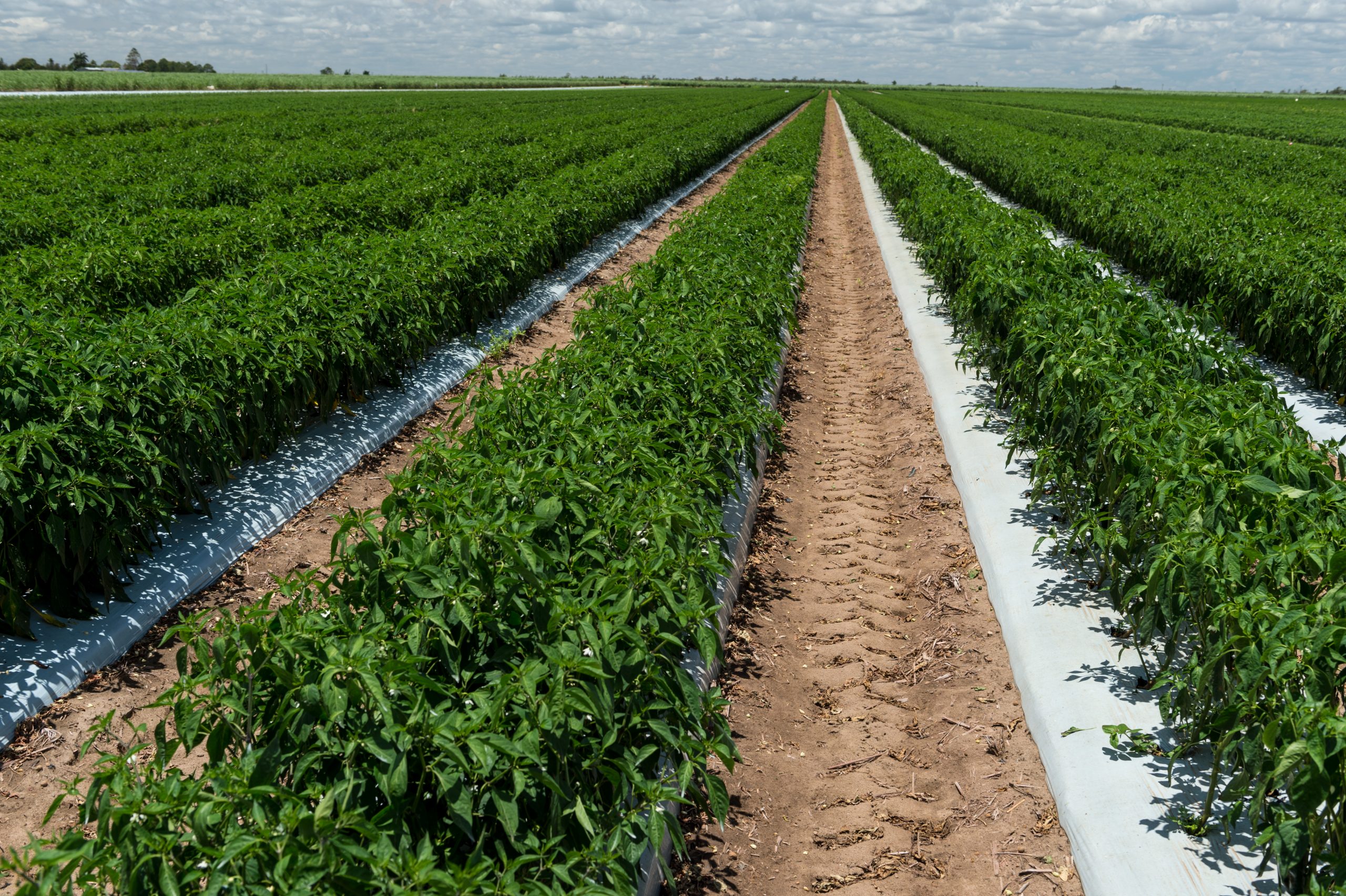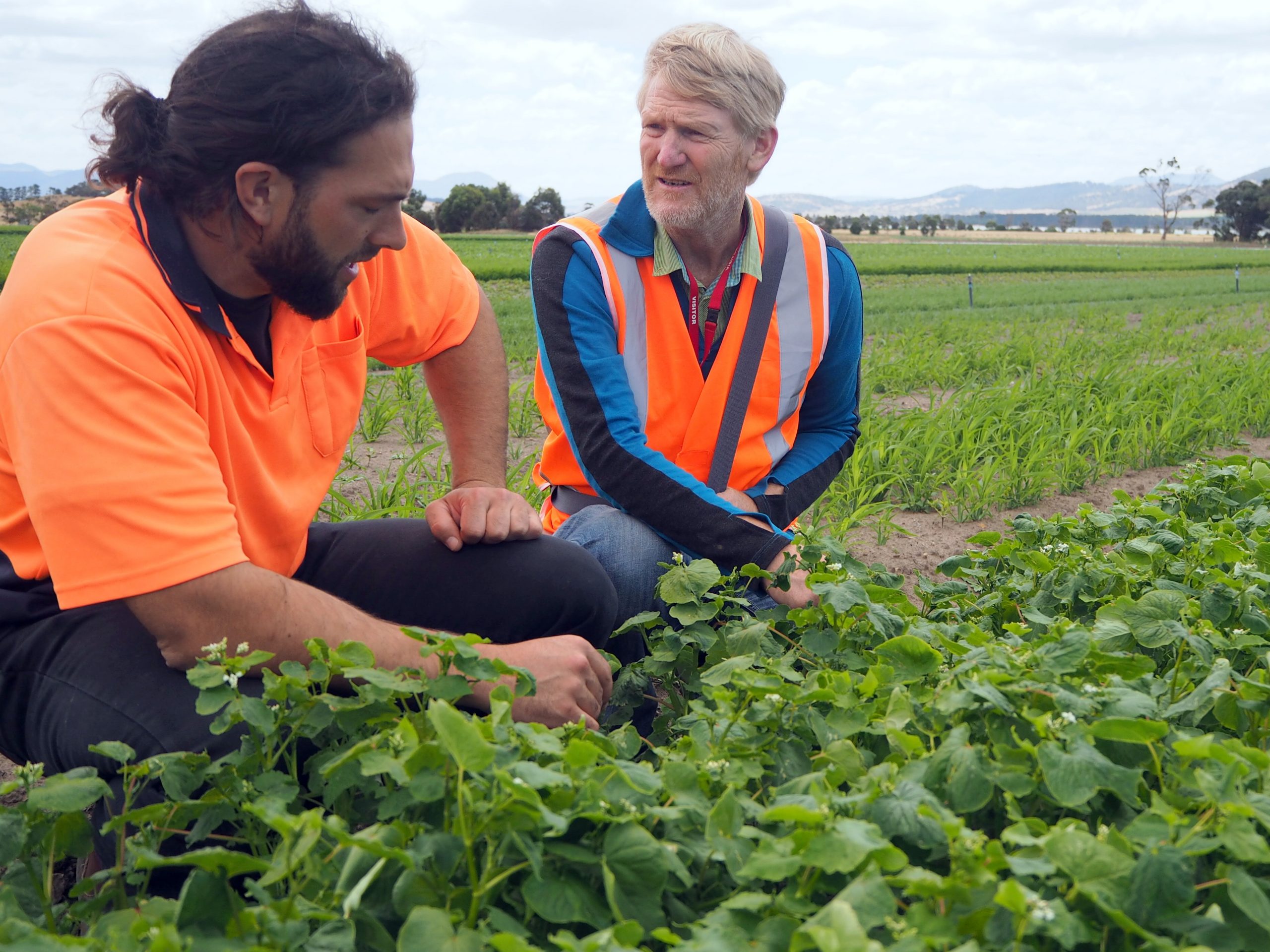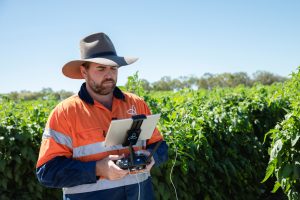
Assisting growers with digital soil moisture monitoring
24 November 2021
Update from the Wide Bay-Burnett region
24 November 2021In this column, VegNET – North Queensland provides an update on its activities, which include helping growers in the region with their labour requirements and workforce planning. The project also catches up with Luke and Gillian Jurgens, who have built a successful business that is built around providing tech-driven Integrated Pest Management and crop imaging solutions.
As anticipated, seasonal worker shortages during the winter growing season in north Queensland have been reported across all sectors. Growers have spoken of issues with worker retention, lower levels of productivity and motivation compared to previous years.
Fortunately, growers who were in a position to employ Pacific Islander workers directly or via Approved Employer Labour Hire have given positive feedback on higher levels of productivity and consistency, which has enabled the businesses to sustain their focus on farm production – the benefits of which are reported to far outweigh the current additional costs of quarantine.
The Queensland Government’s #pickqld bonus scheme and the Australian Government’s AgMove initiatives have assisted horticultural business to attract and retain workers for longer periods. The workers may not otherwise have taken up harvest work. These incentives are still available, and businesses are encouraged to inform job seekers about the potential cash payments up to $6,000 when advertising positions.
Workforce planning has never been more important. The COVID-19 pandemic has fast-tracked the need for the horticulture industry to become less reliant on an overseas workforce and develop strategies that promote agriculture careers to attract new workers into the industry. The Queensland Farmers’ Federation (QFF) and Jobs Queensland are presently developing the Queensland Agriculture Workforce Plan to help shape future industry-led workforce strategies and projects. Industry consultation conducted by QFF is underway, with the plan to be released by the end of 2021 – culminating in an Agriculture Workforce Summit to be held in Toowoomba in February 2022.
Looking to next year, it is imperative to plan as early as possible for your workforce requirements and reach out to the Queensland Agriculture Workforce Network (QAWN) – North Queensland Agriculture Workforce Officer, Julia Wheway at workforce@bowengumlugrowers.com.au or on 0427 009 929 if you would like guidance on workforce planning.
Tech-driven solutions for integrated pest management
Luke and Gillian Jurgens have pioneered beneficial insect distribution in the north Queensland vegetable industry with their business, NQ Aerovation. Luke’s family has a long history of vegetable farming in Bowen; but instead of farming, the couple grew a photography and film business.
“We originally used a Remotely Piloted Aircraft (RPA) to do videography for weddings but being from a farming background, I quickly saw the potential in using the technology on-farm,” Luke says.
The family farm adopted GPS controlled tractors early and since then, they have been hungry for technology, particularly in improving pest control. Beneficial insect releases are a large component of integrated pest management (IPM), and Luke and Gillian saw that the RPA could be a cost-effective solution to a labour-intensive practice.
Every year, vegetable farms spend hundreds of thousands of dollars on releasing beneficial insects that either predate or parasitise pests such as silverleaf whitefly, spider mites and aphids.
Normally agronomists release beneficial insects on-foot, which means distribution is not always effective. Luke and Gillian conducted their own research and development to devise a method and a customised hopper for their RPV to remotely distribute beneficials more efficiently across an entire field.
“We are committed to working on more innovative solutions to improve cost-effective solutions for IPM, and in the process give agronomists and customers more time to concentrate on growing crops,” Luke says.
Luke and Gillian have seen grower adoption of RPAs increase substantially over the years but say that many growers are not sure what they can do with their images – often shelving the devices shortly after purchase due to the lack of after-sale service. Ground truthing is the most important part of remote sensing crops and often growers don’t know where to start.
NQ Aerovation is working very closely with beneficial insect breeders, agronomists, growers, and researchers to create more services to add to their suite of tech-driven IPM and crop imaging solutions to support growers in improving their sustainability.
Find out more
For further information about VegNET – North Queensland activities, please email admin@bowengumlugrowers.com.au.
VegNET 3.0 is a strategic levy investment under the Hort Innovation Vegetable Fund.
This project has been funded by Hort Innovation using the vegetable research and development levy and contributions from the Australian Government.
Project Number: VG21000
Cover image: A Remotely Piloted Aircraft (RPA) flies over a paddock.


